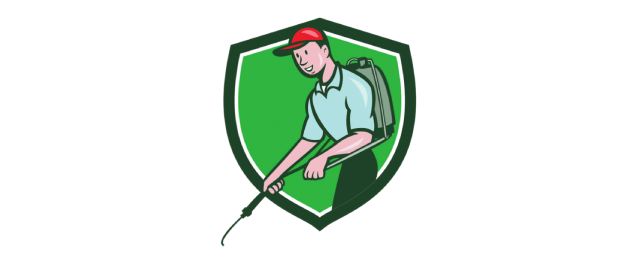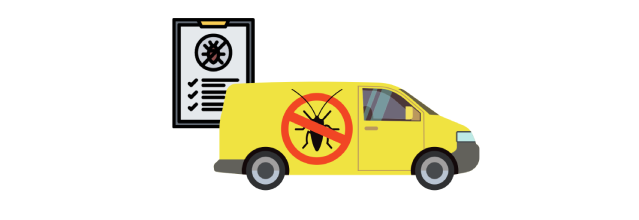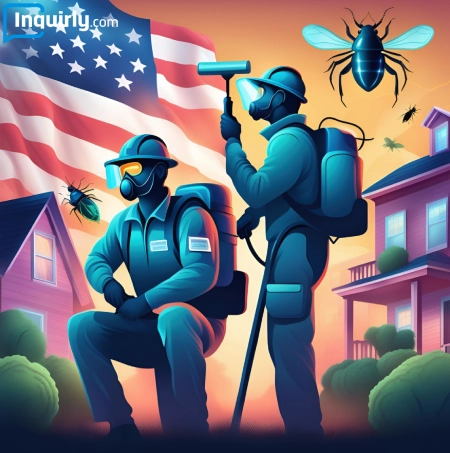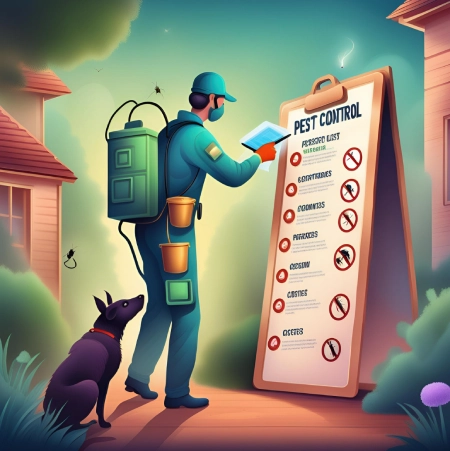The pest control industry is evolving rapidly, with new trends redefining customer expectations and business operations. But what exactly do we mean by “trends”? In this article, we’ll explore the key shifts shaping the future of pest control. But before that, let’s define what we mean by trends.
Trends refer to new ways of doing things, influenced by technology, environmental concerns and changing customer preferences. Customers now want safer, smarter, and more efficient pest control solutions. These trends are shaping the future of how services are delivered and setting new standards for the industry.
In 2024, staying on top of these changes isn’t an option for pest control companies, it’s simply a necessity. Those who adapt can improve their services, build trust and grow their business.
How Trends Influence on Pest Control Businesses
Trends fundamentally change how pest control businesses operate, market themselves and interact with customers.
Consumers today are better informed than ever. They demand pest control services that are both effective and safe. Eco-friendly treatments and IPM (Integrated Pest Management) solutions are becoming the norm. As a result, companies that do not provide sustainable, low-toxicity solutions risk losing clients to competitors who prioritize safety and environmental responsibility.
At the same time, technology has a great impact. Smart pest control tools, like monitoring systems and automated traps, help businesses detect and address pest problems faster and more effectively. This type of innovation saves time and delivers more precise treatments, minimizing the need for follow-up visits.
Personalization is also becoming increasingly important. Offering customized solutions is key to keeping clients happy and loyal. Businesses that take the time to understand and meet these individual needs are more likely to build long-term relationships.
Top 5 Pest Control Trends for 2024
Smart Pest Control

Smart devices and IoT-based tools now allow for real-time monitoring of pest activity. This change is being driven by developments in AI-powered pest control systems and the increasing availability of sensors. These technologies not only help detect pests early but also make treatments more efficient, saving both time and resources.
For example, smart traps and sensors can detect activity and notify technicians of pest problems before they are widespread. These devices constantly monitor for rodents or insects, automatically sending alerts when pests are detected. This method improves service efficiency and reduces the need for routine manual inspections.
Tools such as Anticimex SMART detect infestations early and provide real-time alerts, allowing technicians to respond right away.
Key Tip: Promote smart technology solutions as part of a preventative care package. This is particularly attractive to commercial clients who seek ongoing service with minimum downtime caused by infestations.
Eco-Friendly Pest Control Trends

Customers in 2024 are more environmentally sensitive than ever before, and pest control companies are under the need to adapt. Many businesses are moving away from harsh chemical treatments. Instead, they’re adopting eco-friendly alternatives like botanical-based insecticides, biopesticides, and more natural, sustainable methods.
For example, biopesticides, derived from natural materials such as plants, bacteria, and certain minerals, are gaining traction because they target pests while not harming non-target organisms like bees or birds. Customers who care about the environment and prefer not to use dangerous chemicals, choose biopesticides as an alternative. These alternatives often align with Integrated Pest Management (IPM) strategies, which focus on long-term prevention and reduced chemical usage.
For instance, EcoSMART Organic Insecticide, a botanical-based insecticide made from essential oils, offers an effective, non-toxic solution for residential and commercial clients alike.
Key Tip: Market your eco-friendly services by promoting the safety of your treatments. Many customers, especially those with children and pets, will prefer services that prioritize health and environmental safety.
Commercial Pest Control Services

As a result of increased urbanization and the expansion of industries such as food processing, hospitality and healthcare, commercial pest control is becoming increasingly important and profitable. These businesses are required to adhere to strict cleanliness and sanitation standards, making pest control essential not only for regulatory compliance but also for maintaining their reputation. This has led to a growing demand for pest control companies to offer specialized, customized solutions tailored to the unique needs of commercial clients. Commercial clients often require ongoing contracts, which provide steady, predictable income for pest control companies.
Key Tip: Develop specific service packages for commercial industries, focusing on long-term prevention, compliance with industry regulations, and rapid response times.
Franchise Growth

Franchising continues to be a major growth opportunity in the pest control industry. For those entering the pest control industry or looking to grow quickly, joining a franchise offers access to proven business models, marketing resources, and ongoing support. For established businesses, franchising allows you to expand to new locations and regions without overstretching internal resources. New franchisees can capitalize on brand credibility and a loyal customer base, while larger businesses can use franchising to expand their reach and market share without taking on the risks and costs associated with opening new branches themselves.
Tools such as the Orkin Franchise system provide extensive training, marketing, and support, making it easier for new operators to enter the market and existing businesses to expand.
Key Tip: Consider franchising if you’ve built a successful pest control business and want to expand to new areas. If you’re a new business, look into established franchises that align with your goals to benefit from their systems, branding, and market presence.
Personalized Plans

As we have already mentioned, customization has become essential. Pest control companies that offer tailored services based on factors such as location, pest type and customer preferences will build stronger client relationships and increase customer satisfaction.
Personalization also extends to customer preferences. Some clients may prefer non-toxic treatments, while others might want more aggressive chemical options for quicker results. By offering choices tailored to each client’s concerns and needs, pest control companies can easily outperform their competitors.
Key Tip: Use customer feedback and pest control data to refine and adjust your personalized plans over time. Promote this method by pointing out the value of tailored solutions that fit individual lifestyles and pest problems.
Challenges You Might Face
While these trends present exciting opportunities, there are also challenges businesses may encounter as they adapt:
- Switching to green products can be more expensive than traditional pesticides. Businesses implementing eco-friendly solutions may initially experience financial challenges, particularly if they have to invest in employee training or upgrading their equipment.
- Adoption and Integration of New Technology: Not every company is ready to adopt cutting-edge technologies like AI systems and Internet of Things (IOT) sensors. The upfront cost of purchasing and installing this technology, combined with the need for staff training, can be a major barrier.
- Many customers may not be aware of the benefits of IPM or eco-friendly solutions and might hesitate to switch from traditional methods. Businesses will need to invest in educating their customers about the long-term advantages of these approaches.
- As more franchises enter the market, competition will intensify. Pest control businesses will need to differentiate themselves through superior customer service, innovative solutions and strong marketing.
Conclusion
In conclusion, the demand for individualized services, the need for sustainability, and technological improvements are all driving huge changes in the pest control industry. By staying flexible and embracing these innovations, businesses can position themselves for long-term growth in a dynamic market.
Questions You Might Have
How can I educate customers on the importance of eco-friendly pest control without overwhelming them with technical details?
Focus on simple, relatable benefits like safety for children, pets, and the environment, and offer easy-to-understand comparisons between traditional and eco-friendly methods.
What is the best way to incorporate smart technology into a pest control business?
Start small by introducing one or two smart devices, such as remote monitoring systems or AI-driven traps, and gradually expand as your team becomes comfortable with the technology.
How can a small pest control company compete with larger franchises?
Focus on providing personalized, high-quality service and building strong relationships with customers. Unique solutions and quick response times are what can make you stand out.



